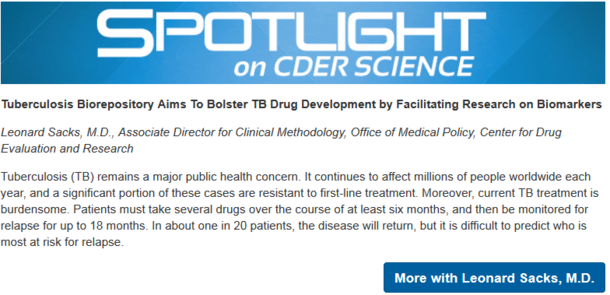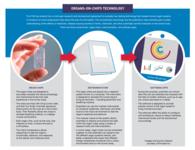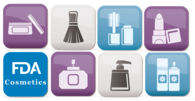


FDA alerts consumers of nationwide voluntary recall of EpiPen and EpiPen Jr
On March 31, 2017 FDA alerted consumers to Meridian Medical Technologies’ voluntary recall of 13 lots of Mylan’s EpiPen and EpiPen Jr (epinephrine injection) Auto-Injector products used for emergency treatment of severe allergic reactions. This recall is due to the potential that these devices may contain a defective part that may result in the devices’ failure to activate. The recalled product was manufactured by Meridian Medical Technologies and distributed by Mylan Specialty. More information |

Sterile Compounded Products by Isomeric Pharmacy Solutions: Recall - Lack of Sterility Assurance
Isomeric Pharmacy Solutions (“Isomeric”) is voluntarily recalling all lots of sterile products compounded and packaged by Isomeric and that remain within expiry to the hospital/user level because of FDA concerns of a lack of sterility assurance. These concerns were brought to Isomeric’s attention during a recent FDA inspection.
The sterile products were distributed to patients, providers, hospitals, or clinics nationwide between October 4, 2016 and February 7, 2017. See the press release for a link to list of all drugs affected by this recall.
|
Comunicaciones de la FDA sobre la seguridad de los medicamentos en español
Descargo de responsabilidad: La FDA reconoce la necesidad de proporcionar información importante sobre seguridad de los medicamentos en idiomas distintos al inglés. Hacemos lo mejor posible para proporcionar versiones en español precisas y oportunas de nuestras Comunicaciones de Seguridad de Medicamentos. Sin embargo, en caso que existiera discrepancias entre las versiones en inglés y la de español, la información contenida en la versión en inglés es la que se considera como versión oficial. Si tiene alguna pregunta, por favor contáctese con Division of Drug Information en druginfo@fda.hhs.gov. Comunicaciones de la FDA |


FDA knows the major public health consequences that can result from drug shortages. These shortages occur for many reasons including manufacturing and quality problems, delays and discontinuations. When issues are discovered, FDA works closely with the company to address risks involved to prevent harm to patients. FDA also considers the impact a shortage would have on patient care and access and works with the company to restore supplies while also ensuring safety for patients. More information
|
Drug Shortages Reported to be Resolved by Manufacturers During the Past 2 Weeks:
Information about blood and biologic shortages, resolved shortages, and discontinuations
La FDA reconoce las consecuencias significativas para la salud pública que pueden resultar de la escasez de medicamentos y hace un gran esfuerzo dentro de sus facultades legales para abordar yprevenir la escasez de medicamentos. La escasez se produce por muchas razones, incluyendo problemas de fabricación y calidad, retrasos y discontinuación del producto. Cuando los problemas son descubiertos por la empresa o el público y reportados a la FDA o se descubren por inspecciones de la FDA, la FDA trabaja en estrecha colaboración con la empresa para hacer frente a los riesgosinvolucrados y evitar daños a los pacientes. La FDA también considera el impacto que una escaseztendría en la atención médica del paciente y al acceso del producto y trabaja con la empresa pararestablecer el suministro al tiempo que garantiza la seguridad de los pacientes. Más información
|

First drug to treat tardive dyskinesia approvedOn Tuesday April 11, 2017 FDA approved Ingrezza (valbenazine) capsules to treat adults with tardive dyskinesia. This is the first drug approved by the FDA for this condition.
Tardive dyskinesia is a neurological disorder characterized by repetitive involuntary movements, usually of the jaw, lips and tongue, such as grimacing, sticking out the tongue and smacking the lips. Some affected people also experience involuntary movement of the extremities or difficulty breathing. More information
|

Two hepatitis C drugs approved for pediatric patients
On Friday April 7, 2017 FDA approved supplemental applications for Sovaldi (sofosbuvir) and Harvoni (ledipasvir and sofosbuvir) to treat hepatitis C virus (HCV) in children ages 12 to 17. Harvoni and Sovaldi were previously approved to treat HCV in adults.
These are the first direct-acting antiviral treatments approved for children and adolescents with HCV. Direct-acting antiviral drugs reduce the amount of HCV in the body by preventing the virus from multiplying, and in most cases, they cure HCV. More information
|
Ipsogen JAK2 RGQ PCR Kit approved
On Friday April 7, 2017 FDA granted marketing authorization to ipsogen JAK2 RGQ PCR Kit, manufactured by QIAGEN GmbH., to detect mutations affecting the Janus Tyrosine Kinase 2 (JAK2) gene. This is the first FDA-authorized test intended to help physicians in evaluating patients for suspected Polycythemia Vera (PV).
On Friday April 7, 2017 FDA granted marketing authorization to ipsogen JAK2 RGQ PCR Kit, manufactured by QIAGEN GmbH., to detect mutations affecting the Janus Tyrosine Kinase 2 (JAK2) gene. This is the first FDA-authorized test intended to help physicians in evaluating patients for suspected Polycythemia Vera (PV).
Diagnoses of PV are based on clinical, biological, bone marrow histology and cytogenetic criteria. The presence of JAK2 mutations is one of the major criteria for clinical confirmation of PV. The V617F/G1849T mutation affecting the JAK2 gene is detected in more than 94 percent of patients with PV. More information

Marketing of first direct-to-consumer tests that provide genetic risk information for certain conditions allowed
On April 6, 2017 FDA allowed marketing of 23andMe Personal Genome Service Genetic Health Risk (GHR) tests for 10 diseases or conditions. These are the first direct-to-consumer (DTC) tests authorized by the FDA that provide information on an individual’s genetic predisposition to certain medical diseases or conditions, which may help to make decisions about lifestyle choices or to inform discussions with a health care professional. “Consumers can now have direct access to certain genetic risk information,” said Jeffrey Shuren, M.D., director of the FDA’s Center for Devices and Radiological Health. “But it is important that people understand that genetic risk is just one piece of the bigger puzzle, it does not mean they will or won’t ultimately develop a disease.” More information |
For information on drug approvals or to view prescribing information and patient information, please visit Drugs@FDA or DailyMed.

View FDA's Comments on Current Draft Guidance page, for a list of current draft guidances and other topics of interest for patients and caregivers.
|

PRISM Identifies Vaccine Safety Issues by: Azadeh Shoaibi, Ph.D., M.H.S., Sentinel Lead at FDA’s Center for Biologics Evaluation and Research
The word “prism” might make you think of a triangular piece of glass that separates white light into a rainbow of colors.
But at FDA, it means a powerful, computer-based system that separates critical bits of information from vast streams of healthcare data in order to investigate adverse events and determine if there is a connection to a specific vaccine. And while the FDA prism–called Post-licensure Rapid Immunization Safety Monitoring System (PRISM)—might not have such a colorful name, it’s a bright light in the agency’s continual efforts to identify adverse effects in a timely manner.
To read the rest of this post, see FDA Voice Blog, April 7, 2017
|


In this section you will find a comprehensive list of all the meetings that the FDA is involved with. The meetings may include advisory committee meetings, public workshops and public conferences that are seeking to hear from patients and caregivers.
Most FDA meetings are free to the public and do not require the public to register. Interested persons may present data, information, or views, orally at the meeting, or in writing, on issues pending before the committee. Other types of meetings listed may require prior registration and fees.
|

Public Workshop: Roadmap for Engaging With the Food and Drug Administration's Center for Drug Evaluation and ResearchDate: May 12, 2017, 9:00 am to 3:00 pm
Location: FDA White Oak Campus - 10903 New Hampshire Ave, Silver Spring, MD. 20993 Agenda: This workshop is intended to help the public learn the most effective ways to successfully engage with CDER. There will be presentations on learning about the drug approval process, as well as the opportunity for questions and answers following each presentation. Please register for this workshop before May 5, 2017. |
View FDA's Patient Network Calendar of Public Meetings page for a complete list of meetings and workshops.
For additional information on other agency meetings please visit Meetings, Conferences, & Workshops.
|

Irritable Bowel Syndrome Treatments Aren't One-Size-Fits-All
Irritable bowel syndrome (IBS) is an often misunderstood and underdiagnosed condition that affects about 15.3 million people in the United States.
No one remedy works for all patients, so there’s a great medical need to develop new therapies for IBS, says Tara Altepeter, M.D., a gastroenterologist with the U.S. Food and Drug Administration (FDA). That’s why the FDA is working to bring more treatments to the market. More information
|
More Consumer Updates
For previously published Consumer Update articles that are timely and easy-to-read and cover all FDA activities and regulated products. More information
For previously published Consumer Update articles that are timely and easy-to-read and cover all FDA activities and regulated products. More information
En Español
La información en esta página es para el público en general, y para profesionales y educadores de salud. Esta información puede ser distribuida y publicada sin previa autorización. En Español
La información en esta página es para el público en general, y para profesionales y educadores de salud. Esta información puede ser distribuida y publicada sin previa autorización. En Español

CFSAN’s Work on Organ-Chip Technology
Researchers in laboratories at FDA’s Center for Food Safety and Applied Nutrition will be testing revolutionary new technology that creates human organ systems in miniature on micro-engineered chips. Beginning with a liver-chip, FDA scientists will be evaluating the effectiveness of this technology to better understand the effects of medicines, disease-causing bacteria in foods, chemicals, and other potentially harmful materials on the human body.
|

Egg Safety: What You Need to Know
Fresh eggs, even those with clean, uncracked shells, may contain bacteria called Salmonella that can cause foodborne illness, often called “food poisoning.” The U.S. Food and Drug Administration (FDA) estimates that 79,000 cases of foodborne illness and 30 deaths each year are caused by eating eggs contaminated with Salmonella. FDA has put regulations in place to help prevent contamination of eggs on the farm and during shipping and storage, but consumers also play a key role in preventing illness linked to eggs. Protect yourself and your family by following these safe handling tips when buying, storing, preparing, and serving eggs—or foods that contain them. WATCH a video on Playing it Safe With Eggs and for more information on egg safety. |

The Safety Reporting Portal
The Safety Reporting Portal (SRP) streamlines the process of reporting product issues to the Food and Drug Administration and the National Institutes of Health. Whatever your role, (manufacturer, health care professional, researcher, public health official, or concerned citizen), when you submit a safety report through this Portal, you make a vital contribution to the safety of America's food supply, medicines, and other products that touch us all. More information
Center for Food Safety and Applied Nutrition
The Center for Food Safety and Applied Nutrition, known as CFSAN, carries out the mission of FDA. The Center provides services to consumers, domestic and foreign industry and other outside groups regarding field programs; agency administrative tasks; scientific analysis and support; and policy, planning and handling of critical issues related to food and cosmetics. More information
Food Facts for You
The Center for Food Safety and Applied Nutrition, known as CFSAN, issues food facts for consumers to keep you and your family safe. More information |

Lovely Lilies and Curious Cats: A Dangerous Combination
Cats are curious creatures by nature. They love to play, jump, and roam around the house or yard, but sometimes their inquisitive personalities get the best of them. They’re just drawn to that beautiful bouquet of stargazer lilies on your kitchen table or the colorful cluster of daylilies in your garden.
Lilies are extremely popular around the world and are commonly seen in garden beds and borders and in bouquets. While their flowers are lovely to see and smell, lilies pose a significant safety threat for your cat. More information
|

Animal Health LiteracyAnimal Health Literacy means timely information for the benefit of all animals and their humans. With continuous communication and outreach, the Center for Veterinary Medicine (CVM) strives to enhance the public trust, promote safe and effective use of the animal health products we regulate, and share our scientific endeavors. CVM provides reliable, science-based information to promote animal and human health. More information and Publicaciones en Español del FDA
Animal and Veterinary UpdatesAnimal and veterinary updates provide information to keep your pets healthy and safe. More information
|

How to Report a Pet Food Complaint
You can report complaints about a pet food product electronically through the Safety Reporting Portal or you can call your state’s FDA Consumer Complaint Coordinators. Please provide as much information as possible in your complaint, such as exact name of product, type of container, lot number, UPC codes, how the food was stored, and purchase date and exact location where purchased. If possible, please save the original packaging until the pet food has been consumed. The packaging contains IMPORTANT information often needed to identify the variety of pet food, the manufacturing plant, and the production date. More information |

Missed the Last Issue of CTPConnect?
FDA’s Center for Tobacco Products (CTP) publishes a regular periodical known as CTPConnect, a plainspoken digest with the latest stories from the Center. Sign up today to receive the next issue of CTPConnect and other important updates from CTP directly to your inbox. |

Center for Tobacco Products updated safety reporting portal
CTP recently updated its Safety Reporting Portal, an online tool for reporting suspected problems with tobacco products. Whether you’re a consumer, manufacturer, clinical investigator, or health professional, let FDA know about products that seem to be damaged, defective, contaminated, or that smell or taste wrong. More information and to report a safety concern online. |
From plant to product to puff—where do toxic chemicals in cigarettes come from?
With more than 7,000 chemicals in cigarette smoke—over 70 of which are linked to cancer—it comes as no surprise that cigarettes contain harmful chemicals that cause death and disease. But where do these toxic chemicals come from? And why are there so many? Watch the FDA’s video series about chemicals in cigarettes to find out, and test your knowledge with our short quiz online.
With more than 7,000 chemicals in cigarette smoke—over 70 of which are linked to cancer—it comes as no surprise that cigarettes contain harmful chemicals that cause death and disease. But where do these toxic chemicals come from? And why are there so many? Watch the FDA’s video series about chemicals in cigarettes to find out, and test your knowledge with our short quiz online.

How Cigarettes are Made and How You Can Make a Plan to Quit
Ever wonder why it’s so hard to kick smoking to the curb? Well, we’ve got an answer! CTP recently introduced an infographic that explores how cigarettes are made, highlighting how their very design may be an obstacle to quitting. As people across the country pledge to quit smoking, consider sharing this infographic with someone who could benefit. |

Bad reaction to a cosmetic? FDA needs to know
What do you do if you have a reaction after using a cosmetic product? First, stop using the product and contact your healthcare provider. Next, please report it to FDA.
Here’s why that next step is so important: Cosmetic products aren’t required by law to have FDA approval before they go on the market. Companies that market cosmetics have a legal responsibility to ensure product safety, but FDA can only take action if the product is shown to be unsafe after the product is on the market.
And, because the law doesn’t require cosmetic companies to share customer complaints or other safety information with FDA, voluntary reports from consumers and healthcare providers are one of the best ways for FDA to learn about any problems.
Cosmetics include a range of products people use every day, such as moisturizers, makeup, shampoos and conditioners, face and body washes, deodorants, nail care products, hair dyes and relaxers, and tattoos. More information
|
Recalls and Alerts
To see safety alerts and recent recalls related to cosmetics and other products regulated by FDA. More information
To see safety alerts and recent recalls related to cosmetics and other products regulated by FDA. More information
What to watch for, how to report
You can report an allergic reaction, a rash, redness, burn, hair loss, headache, infection, illness, or any other unexpected reaction, whether or not it required medical treatment. You can also report a bad smell, color change, or other sign of contamination. You can choose the way you’d prefer to report:
You can report an allergic reaction, a rash, redness, burn, hair loss, headache, infection, illness, or any other unexpected reaction, whether or not it required medical treatment. You can also report a bad smell, color change, or other sign of contamination. You can choose the way you’d prefer to report:
- Call an FDA Consumer Complaint Coordinator if you want to speak directly to a person about your problem.
- Complete an electronic Voluntary MedWatch form online.
- Complete a paper Voluntary MedWatch form that you can mail to FDA.

Information about Expanded Access
Expanded access, sometimes called "compassionate use," is the use outside of a clinical trial of an investigational medical product (i.e., one that has not been approved by FDA). FDA is committed to increasing awareness of and knowledge about its expanded access programs and the procedures for obtaining access to human investigational drugs (including biologics) and medical devices. More information |
Learn about what your physician should do before submitting a request for individual patient expanded access use of an investigational medical product, who may be eligible for expanded access, associated costs, FDA contacts and more. Information for Patients
|
Learn about your responsibilities under the expanded access pathway, how to submit a request for expanded access for an individual patient (including for emergency use), which forms to use, FDA contacts and more. Information for Physicians
|

FDA Patient Network
The FDA Patient Network contains a series of webpages, webinars and presentations on topics related to patient engagement, FDA regulations, understanding medical product (Drugs, Biologics, and Devices) approval and medical product safety updates, Take me to the FDA Patient Network , Follow us on twitter or take me to FDA Webinars.
FDA Basics
Each month, different centers and offices at FDA will host an online session where the public can ask questions to senior FDA officials about a specific topic or just listen in to learn more about FDA. More information
Educational Videos
|

healthfinder.gov
Welcome to healthfinder.gov, a government Web site where you will find information and tools to help you and those you care about stay healthy. More information /más información
FDA Email Updates
Sign up for one of the FDA disease specific e-mail list that delivers updates, including product approvals, safety warnings, notices of upcoming meetings, and notices on proposed regulatory guidances.
You may wish to sign up for other email updates from the FDA - see other email updates.
|


































No hay comentarios:
Publicar un comentario